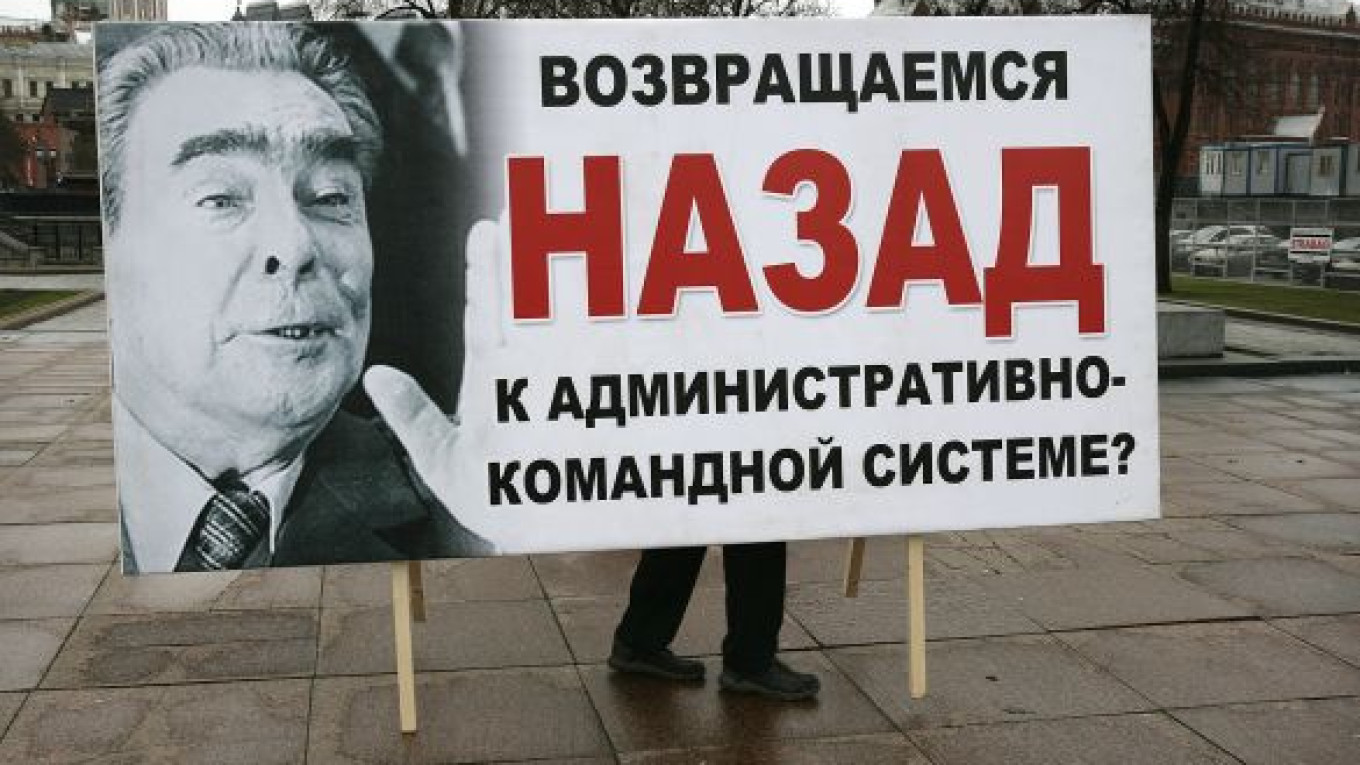The government needs a reasonable budget policy and a new plan to diversify its economy and attract investment if it hopes to return to booming precrisis growth, the World Bank said Tuesday.
“The vulnerability of Russia’s economy will increase if the government doesn’t change the structure of the economy,” World Bank economist Sergei Ulatov told a news conference.
According to a World Bank report on Russia released Tuesday, the economy will reach its precrisis level only in 2012. Ulatov said the government should choose a new economic model for the country within the next three years.
“Russia’s economy will grow by only 3.5 percent to 4 percent with the old model, and by 6 percent if the government chooses an innovative one,” he said, adding that even the 6 percent growth would be below the precrisis average in recent years.
The government and economists have constantly argued that Russia is overreliant on raw materials, but reform has proved hard, particularly amid high commodities prices in recent years.
The World Bank cut its GDP forecast for 2009, saying the economy would contract by 8.7 percent this year. That is worse than the previous forecast, released in June, when the bank’s analysts expected a contraction of 7.9 percent.
The Economic Development Ministry forecasts an 8.5 percent drop.
“Weak global demand, compressed consumption and tight credits will continue to constrain economic recovery,” the report said. As a result, analysts expect modest growth of 3.2 percent in 2010, higher than the ministry’s most recent forecast of 1.6 percent expansion.
Ulatov said the best option for Russia was to consider a new growth model, based on increases in productivity and innovations and on improving the country’s investment climate.
Prime Minister Vladimir Putin met with foreign investors as part of the Foreign Investment Advisory Council on Monday, where he promised to lower administrative barriers and allow foreign companies to take part in privatizations next year.
“We think that the most important thing for the government to do is to improve the investment climate, as it will be a substantial source of growth,” World Bank economist Karlis Smits said.
Some regions, which had been frontrunners in improvement of the investment climate, could teach others from their experience.
“Russia has benefited from the government’s recent fiscal reforms, and Russia compared with other countries in the region entered the crisis with an extremely strong fiscal position,” Smits said. But the government will nonetheless have to borrow to cover its fiscal debt, although not extensively.
Last week, Finance Minister Alexei Kudrin led a government delegation to meet investors in London for a “non-deal road show” to discuss a planned issue of $17.8 billion in sovereign eurobonds, although he said the actual sale could be far less.
The government has been spending rapidly despite falling revenue to help the economy out of recession, but the World Bank cautioned that Russia would also have to start reigning in spending.
Smits said that the government had already introduced unprecedented steps to cut federal expenditures. “I think we’re talking about 2 percent to 3 percent of GDP,” he said, adding that it was also important to increase efficiency of government’s expenditures.
The World Bank also said the government is being very careful about withdrawing the stimulus and anti-crisis measures for the next three years. A significant amount of money in the budgets for 2010 through 2012 will be earmarked for anti-crisis measures, especially the labor market, Smits said.
A Message from The Moscow Times:
Dear readers,
We are facing unprecedented challenges. Russia's Prosecutor General's Office has designated The Moscow Times as an "undesirable" organization, criminalizing our work and putting our staff at risk of prosecution. This follows our earlier unjust labeling as a "foreign agent."
These actions are direct attempts to silence independent journalism in Russia. The authorities claim our work "discredits the decisions of the Russian leadership." We see things differently: we strive to provide accurate, unbiased reporting on Russia.
We, the journalists of The Moscow Times, refuse to be silenced. But to continue our work, we need your help.
Your support, no matter how small, makes a world of difference. If you can, please support us monthly starting from just $2. It's quick to set up, and every contribution makes a significant impact.
By supporting The Moscow Times, you're defending open, independent journalism in the face of repression. Thank you for standing with us.
Remind me later.


